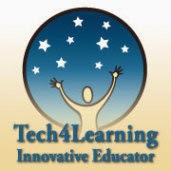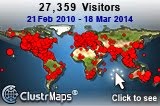Perk up your listening ears and you will notice that everyone has an opinion about teachers. Parents have strong viewpoints on which teachers are "good" at their child's school though Parent A and Parent B might strongly disagree on which teacher is the best.
Politicians are forever searching for a way to measure good teaching. Should good teaching be rewarded with better pay? How, then, will we measure good teaching? And, of course, bad teachers should be forced from the classroom!
I purposely use the vague and almost meaningless words "good" and "bad" to introduce the idea that perhaps we need to look at teaching and teachers through a different lens.
What I think it boils down to, in the most basic way, is relationship. Teaching is one half of a relationship.
The teacher-student relationship is archetypal. It is certainly not dependent on a classroom or a school. As I think deeply about teachers and teaching and what I consider to be a good teacher, I keep coming back to trust. As a student (or a parent of a student) I must give over a certain amount of trust to the teacher. This is what, I believe, is being eroded with our personal and societal preoccupations with measuring and quantifying teaching.
As a teacher, you must earn your student's trust. You must commit to do the hard work necessary to be worthy of that trust. You must reinvent yourself, your practice, your lessons, your knowledge. You must deeply understand the way in which each class and every student is unique. To be a true teacher is to want to be in relationship with students, to realize that you teach human beings, not subject matter.
On the flip side, teachers are also special and unique. Teachers are not machines. We are not robots. We can not be expected to talk alike, work alike, manage classrooms alike, have the same notions of what is most important for our students.
As a student and a parent I have my ideas of what good teaching looks like, sounds like, and feels like to me. I also try to remind myself to put these expectations aside, to trust a teacher who may, in many ways, differ from my ideal of a good teacher. Each caring teacher imparts a different lesson.
From time to time I hear the question, "Will computers replace teachers?" With good software and instructional media, can't I learn whatever I want to learn without a teacher? Good instructional design (designed by humans!) is an excellent way to reach learners. However, learners are individuals and instructional software and materials can only reach so far into a learner's soul.
Will computers replace spouses? Will computers replace having children?
"Computers are magnificent tools for the realization of our dreams, but no machine can replace the human spark of compassion, love and understanding." -Louis Gerstner
A story-Some years back I wanted to learn to play the guitar. I envisioned singing my favorite songs and strumming easily in accompaniment. It was difficult and frustrating to be a beginner, and I had to tap into everything I knew about being a learner.
First of all, I found a teacher. But after weeks of lessons, practice, chords and scales, I still couldn't play a song. I began to get antsy. I started to question my teacher.
When he finally taught me a song, it was not a song I chose, but a song he chose. I was beginning to really question whether I had the right teacher. Other friends with other teachers had learned to play songs early-on. Why was he making me suffer? Why did my first song have to be a difficult jazz song? Why, why, why???
Being a teacher myself, and one who reveres the teacher-student relationship, I calmed myself. Trust him, I thought. He is the teacher. You are the student. He is your guide; you must trust him. Finally he allowed me to choose a song. I chose "Here Comes the Sun" and boy, was I excited. I will tell you that no beginning guitar student has ever played such a complicated and lovely rendition of "Here Comes the Sun." Not just chords, my teacher taught me every note and nuance of the song. The proof came when I played for my friend, Scott, an extremely accomplished guitar player. Scott had been playing guitar for decades, and had not taken a lesson for many years. When he heard his beginner friend play "Here Comes the Sun," he requested my teacher's phone number.
The other day a friend told me she was interested in trying yoga. I mentioned how much I like my studio, that she might want to try a class. She said she had a yoga program on her wii fit. Now, I have to admit I don't have a wii fit, so I don't speak from personal experience. But it seems to me that while a wii fit might be a decent tool for getting a little exercise, I have a hard time imagining how the wii fit could hold a candle to a real yoga teacher who sets the mood, imparts bits of wisdom, adjusts certain poses and guides the journey. I can't imagine the wii fit having a passion for yoga. I have trouble imagining a new student falling in love with yoga through the generic program that is created basically the same for everyone. I will take a real teacher over a machine any day of the week.
 I love Shelfari, a social networking site for readers. I am an avid reader, but not a big collector of physical books. I don't have an ereader; I do read books. However, I get a lot of my reads from the public library or borrowed from friends. If I do buy a book and love it, the first thing I usually do is pass it on to someone else I think will enjoy it. Therefore, my bookshelves do not represent my life as a reader. Enter Shelfari. Now, I can have the pleasure of a beautiful bookshelf to display my books. It helps me remember what I have read and when, what I liked, what I loved.... If anyone else is interested in my reading, they can "friend" me and peruse my shelves. I have recently started including on my shelfari shelves the books I read aloud to my children, as well. I'm happy to have a way to remember those precious moments spent each night at bedtime, even after the physical books have made their way back to the library or shared with others.
I love Shelfari, a social networking site for readers. I am an avid reader, but not a big collector of physical books. I don't have an ereader; I do read books. However, I get a lot of my reads from the public library or borrowed from friends. If I do buy a book and love it, the first thing I usually do is pass it on to someone else I think will enjoy it. Therefore, my bookshelves do not represent my life as a reader. Enter Shelfari. Now, I can have the pleasure of a beautiful bookshelf to display my books. It helps me remember what I have read and when, what I liked, what I loved.... If anyone else is interested in my reading, they can "friend" me and peruse my shelves. I have recently started including on my shelfari shelves the books I read aloud to my children, as well. I'm happy to have a way to remember those precious moments spent each night at bedtime, even after the physical books have made their way back to the library or shared with others.





+on+Twitter.jpg)



















